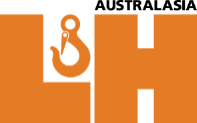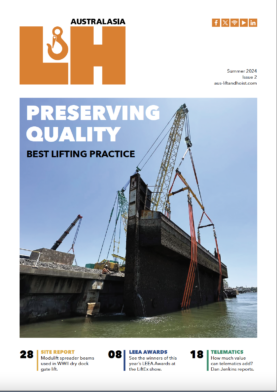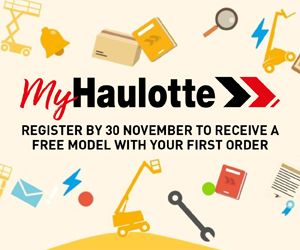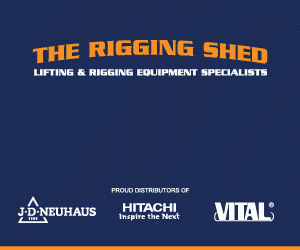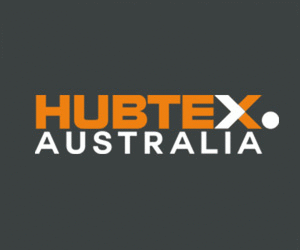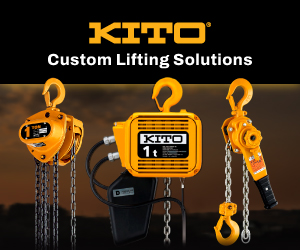)
Konecranes reports global impact on business
Konecranes first quarter results reflect that the worldwide demand picture remains subject to significant volatility.
Due to the Coronavirus (COVID-19) pandemic, the demand environment within the industrial customer segments is deteriorating in Europe and North America compared to Q1. While China is showing early signs of improving demand conditions from early 2020, demand environment in the rest of Asia-Pacific is weakening.
Global container throughput has declined sharply and many port operators are postponing decision-making in the current environment. However, long-term prospects related to container handling remain good overall.
Order intake in Q1 of 2020 (January – March) reached €737 million that is a 13.1% fall on the same quarter last year. Orders declined in the Industrial Equipment and Port Solutions business sectors, partly offset by growth in the Service business sector. Excluding MHE-Demag, order intake declined 17.4% percent.
The order book stood at €1,961.3 million at the end of March, up 4.5% on last year. Excluding MHE-Demag, the order book declined 2.6%. Sales were at €769.6 million up 1.5% from last year driven by growth in Service and Port Solutions. Excluding MHE-Demag, sales declined 1.3%.
President and CEO Rob Smith said, “The world changed dramatically during the first quarter of 2020. Directly or indirectly, every country and business around the world has increasingly felt the impact of the COVID-19 coronavirus pandemic. Our focus is on the safety of our employees and on supporting the essential mission-critical operations of our customers worldwide. Our unwavering focus on these objectives ensures that our employees, our customers and our business emerge from this unprecedented period safely and in excellent health.
“As the virus rapidly spread around the world, countries began to impose extensive restrictions on the daily conduct of people and businesses. The global economy has suffered as a result, with no clear consensus on what the recovery will look like; many countries have yet to see a peak in the number of infections, and many forecasts are measuring a recovery in terms of years. We have been preparing for multiple recovery scenarios with an intense focus on ensuring our cost base is fully aligned with the reduced and uncertain demand environment.
“In Q1, many of Konecranes’ customers limited access to their premises, affecting our ability to perform on-site work and making it especially challenging to deliver and install new equipment and perform on-site service operations. While our reported sales increased slightly year-on-year due to the inclusion of our recent MHE-Demag acquisition, comparable sales versus a year ago declined approximately 1.3%. In Q2, we expect the coronavirus impact on sales to be particularly negative.
“Our own operations also have been affected by the pandemic. Material deliveries have become more challenging. Also, some of our factories were interrupted during parts of the first quarter. At the end of April, our factories in India, Malaysia, Philippines and South Africa are shut down. At this point we expect the impact from these disruptions to our global supply operations to be limited, largely as our European component factories have continued to run without interruptions.
“The pandemic is impacting the demand for Konecranes’ products and services. In Q1, Group order intake including MHE-Demag declined approximately 13% year-on-year. While the coronavirus impact was particularly clear in our industrial businesses, the decline in Business Area Port Solutions was primarily due to the large Hadarom greenfield automation deal booked in Q1 2019, making it a tough year-on-year comparison. Due to the crisis, we expect order intake in Q2 to decline sequentially in all of our three Business Areas.
“Konecranes is playing a vital role in safeguarding the continuous flow of food, medical supplies and other essential materials as we fight this crisis. In Service, some customers who have slowed their own factory operations are scheduling larger overhauls. As a bright spot in Q1, on a comparable currency basis, the annual value of the agreement base grew 8.1% year on year excluding MHE-Demag. We have not seen cancellations of significant orders in any of our Business Areas, and while many port operators are postponing decision-making, thus far we have not seen cancellations of planned port investments.
While the coronavirus pandemic is weighing on profitability, in Q1 the Group adjusted EBITA margin was mostly affected by one-off cost items in Port Solutions and Industrial Equipment. The Group adjusted EBITA margin of 2.7% was down from 6.4% in the year-ago quarter. Port Solutions had an estimated one-time cost overrun of EUR €18 million in a port crane project in the US. The profitability in Industrial Equipment was weighed by further costs incurred in closing the process crane project which affected our profitability in Q4.
“We expect a significant sequential sales decline in Q2 and are adjusting our cost base across all elements of our business to be aligned with the reduced sales levels and uncertain demand. These actions will benefit us already in Q2 and we expect the adjusted EBITA margin to improve quarter-on-quarter.
“Beyond Q2, turning around the process crane business and improving the profitability of the Industrial Equipment business is one of my key focus areas. Additionally, we are concentrating on supply chain operations performance, delivering manufacturing efficiencies and driving procurement savings, both direct and indirect.
“Konecranes is the global leader in our industry with an unparalleled original equipment and service offering in terms of technology, footprint and market position, giving us a unique competitive advantage.
“As we navigate our way through the crisis, the safety and well-being of our employees and supporting the essential mission-critical operations of our customers are our highest priority. We have a healthy balance sheet and liquidity position and will emerge from this crisis the same way we entered it: as the industry leader.
